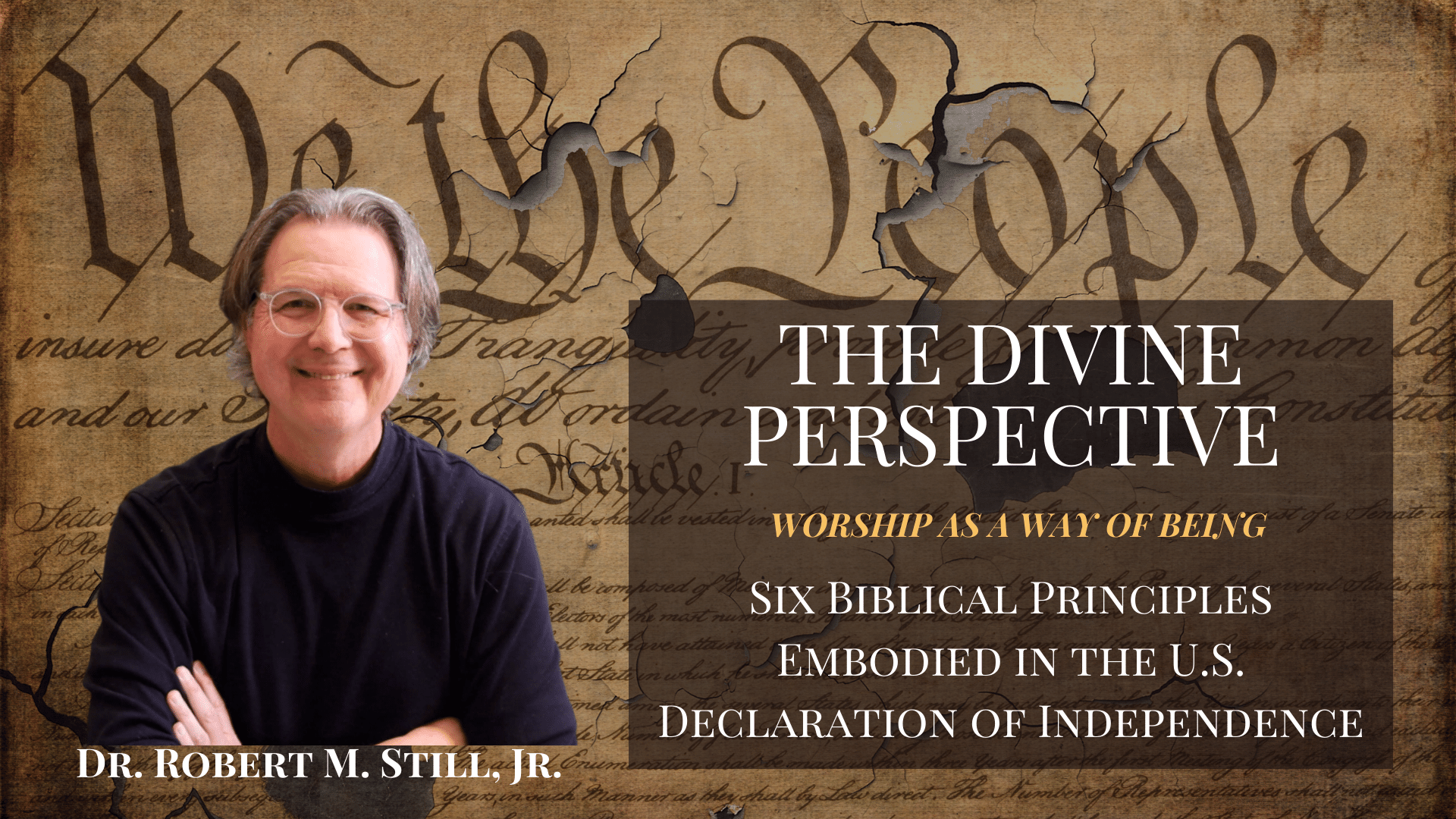Six Biblical Principles Embodied in the U.S. Declaration of Independence

In today’s July 4th edition of the Divine Perspective, we consider six biblical principles embodied in the United States of America Declaration of Independence.
1. Innate Human Dignity. From the beginning, the Bible asserts that all human beings are created Imago Dei, in the image and likeness of God (Gen 1:27). The Declaration of Independence builds upon this foundational truth, declaring it is “self-evident” that every person is created equally with “certain unalienable Rights, that among these are Life, Liberty and the pursuit of Happiness.”
2. Natural Human Rights. The Declaration asserts that human rights are not granted by governments, but are inherent in human existence. Psalm 139:13-14 reflects that from the moments of human conception, when “you knit me together in my mother’s womb,” human life is “fearfully and wonderfully made.” The biblical passage highlights the intrinsic value of human life and implies its legal rights. The Declaration builds upon the biblical idea that individuals have rights to life and freedom first given by God.
3. Government by Consent. The Declaration maintains that governments can only derive their power “from the consent of the governed.” The Bible teaches that leaders are responsible for serving and protecting their constituents and be held accountable for governing righteously. Romans 13:1 states, “Let everyone be subject to the governing authorities, for there is no authority except that which God has established. The authorities that exist have been established by God.” Although this verse addresses submission to a governmental authority, it implies that the power of government derives from God’s ordination and the governed’s consent.
4. Right to Self-Governance. The Declaration states that “it is the Right of the People to alter or to abolish” government and to “institute new Government,” free from oppressive rule. This idea reflects biblical themes of freedom, self-determination, and the idea that God’s people are to have a role in shaping their society.
We see an example of participatory self-rule in Exodus 18:21; “But select capable men from all the people—men who fear God, trustworthy men who hate dishonest gain—and appoint them as officials over thousands, hundreds, fifties, and tens.” This passage illustrates the principle of the people selecting their leaders and participating in self-governance.
A New Testament example is found in Acts 6, when the apostles charged the members of the church to select delegated leaders to serve some specific needs of the constituency, “So, brothers, select from among you seven men of good reputation, full of the Spirit and wisdom, whom we will put in charge of this need … and the statement pleased the whole group…” (Acts 6: 3 and 5).
5. Right to Seek Redress. The Declaration establishes that people have a right to challenge their government for grievances and to seek redress when their rights are violated. Redress is a biblical principle. The Bible advocates justice for the vulnerable and upholds the rights of the marginalized. Proverbs 31:8-9 admonishes, “Speak up for those who cannot speak for themselves, for the rights of all who are destitute. Speak up and judge fairly; defend the rights of the poor and needy.”
6. Revolutionary Spirit. The Declaration of Independence, while not explicitly biblical, is built upon the values and principles contained within the biblical ideals of human dignity, freedom, justice, and accountable governance.
The Bible contains narratives of individuals and communities taking a stand against injustice, oppression, and tyranny.
One example is the story of the Israelites’ liberation from Egyptian bondage in Exodus 3:7-10. God calls Moses to lead the Israelites from slavery in Egypt, highlighting the principle of standing against oppression and seeking liberation. God’s purpose was for his people to be free to worship him (Ex 7:16). Freedom of religion was another founding principle of the American Revolution.
We see another example of standing against unjust and oppressive systems in Acts 5:29. When the governing authorities commanded the apostles to no longer teach in the name of Jesus, their reply was, “We must obey God rather than human beings!”
Conclusion
The values and principles reflected in the U.S. Declaration of Independence resonate with the biblical ideas of innate human dignity, natural human rights, government by consent, self-governance, seeking redress, and a revolutionary spirit.
Although the American Declaration launched a revolution that reshaped the world’s geopolitics, the gospel of Jesus Christ continues to perpetuate the greatest revolution in the history of the world.
And that is today’s Divine Perspective.
